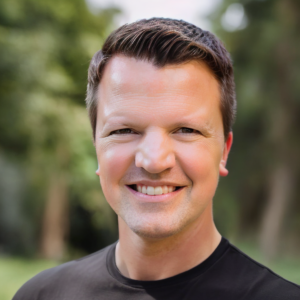How Optimizely’s Takeshi Young Does SEO: An Interview
Digital marketers have a lot of options these days: SEO, PPC, social, content, email, etc. SEO hasn’t always been the most popular, and can still be a difficult sell to skeptical executives. Google is always updating, which means tactics and best-practices are a bit of a moving target, and many marketers are still unclear on how to monitor metrics the C-suite actually cares about.
Enter Takeshi Young. Young started on the technical side of building websites 15 years ago. Over the years, his focus turned towards SEO which has become his passion (that, and salsa dancing) Young sees the true return-on-investment of SEO on a daily basis.
 Our company chooses to focus on SEO because a large percentage of our traffic comes from organic search, and by applying SEO best practices we are able to increase our reach in the search results.
Our company chooses to focus on SEO because a large percentage of our traffic comes from organic search, and by applying SEO best practices we are able to increase our reach in the search results.
In only six months, Young got buy-in for SEO and doubled Optimizely’s organic blog traffic. How’d he do it? Great strategy, hard work, and a lot of passion.
Silence the Haters with Data
Within any company, there are people who aren’t necessarily believers when it comes to SEO. Young says when he’s “evangelizing” for SEO, his best tactic is to “wow” them with stats.
He recommends starting small, and creating effective, data-driven presentations that prove the power of SEO.
Rather than asking for a large budget and trying to execute a big project right away, implement something small and prove what you are doing is working.
Beware the vanity metrics of SEO: those things that look good on paper, but don’t actually connect to revenue growth. Stats that the executive team wants to see include:
- Keyword rankings—Keep in mind that rankings changes should be measured over the long-term, and that factors like personalization, keyword search volume, and ranking position all need to be considered.
- Traffic from organic search—Use Google Analytics to monitor actual organic traffic. Good keyword rankings are nice, but worthless if users don’t actually click.
- Conversions and ROI from organic search—Finally, monitor goal completions and conversations from organic search. This is where SEO really starts to impact the bottom line.
In terms of ROI, we look at organic traffic, leads, and ultimately revenue generated from customers who came in through SEO.
It’s hard to argue with the numbers. Start small, prove your success, and keep growing your SEO strategy.
Prioritize Your Ideas
As a company, Optimizely has adopted a “try anything” attitude, which definitely helps Young’s case for SEO. Sometimes that means testing a lot of hypotheses to measure what works and what doesn’t.
We try to prioritize based on the business impact a change will have to a site. We come up with a numerical value to prioritize it.
In the world of SEO, that usually means prioritizing engagement SEO strategies over technical SEO strategies, but some technical considerations—website speed, mobile usability, crawlability and indexing, etc.—must be taken care of to get your SEO campaign off the ground. Fixing any red flags can provide some initial quick-wins.
Our quickest SEO wins have come from technical improvements on our site. Your site is 100% under your control, so it’s a good place to start when doing SEO.
Past that, engagement SEO strategies that partner very closely with content marketing are what impact a brand’s bottom line.
Maximize Content with SEO
When it comes to easy things you can do to improve SEO on a site quickly, Young has experienced great success in content marketing.
Creating keyword-focused content is another quick win. By researching relevant and underserved keywords, and then creating content around them, you can generate lots of organic traffic quickly.
That doesn’t mean you create sloppy content, however—”quickly” is relative. Content that works with your SEO strategy can’t be shallow, unoriginal, and/or unengaging.
For example, here is one of Optimizely’s blog posts that did really well. It ranks in many relevant keywords, and does amazing in search. It’s also fairly long, with 71 different points. The value is in the length and the content, says Young.
I think long-form content has a lot of value on the web. People are tired of these 500 word blog posts with short, snack-size content that they consume and throw away.
Long-form content consistently correlates to higher search rankings, probably because it is usually not just long, but high-value and actionable. Content that provides significant SEO value is:
- Helpful—It speaks to a need, solves a problem, eases a pain point, etc.
- Popular—After your initial push, it performs well on social media by itself.
- Engaging—It draws the reader in and invites interaction.
Winning SEO
SEO has played a part in every aspect of Optimizley’s marketing, according to Young.
SEO also helps increase the reach of all the content we produce, and plays a part in all of our marketing efforts, from brand recognition and thought leadership to event marketing and recruiting.
SEO continues to be important part of any company’s marketing strategy, and experts like Takeshi Young continue to lead the way.
Takeshi Young is the SEO Manager at Optimizely, one of the top optimization platforms specializing in marketing-leading testing and personalization solutions. The five-floor office where he personally oversees the SEO side of the company is located in the heart of downtown San Francisco.
What's Next?
Profound Strategy is on a mission to help growth-minded marketers turn SEO back into a source of predictable, reliable, scalable business results.
Start winning in organic search and turn SEO into your most efficient marketing channel. Subscribe to updates and join the 6,000+ marketing executives and founders that are changing the way they do SEO:
And dig deeper with some of our best content, such as The CMO’s Guide to Modern SEO, Technical SEO: A Decision Maker’s Guide, and A Modern Framework for SEO Work that Matters.




